airbags
Latest
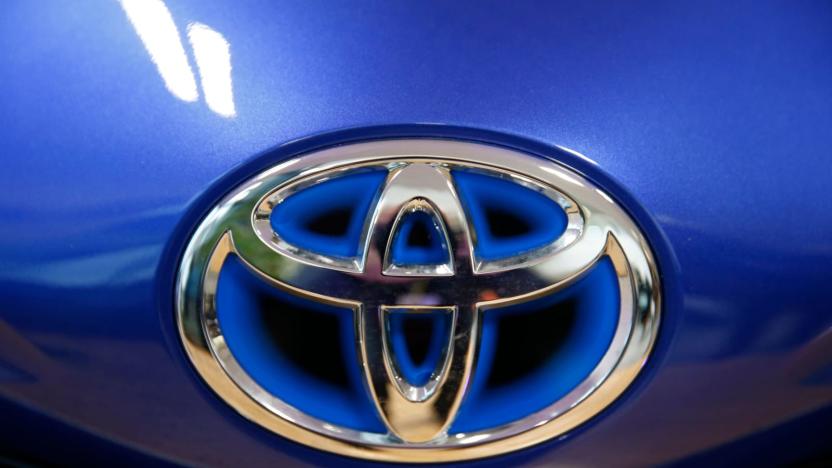
Toyota recalls another 1.7 million cars over faulty airbags
The problems with Takata's potentially defective airbags persist years after they began. Toyota has recalled another 1.7 million cars worldwide, 1.3 million of them in the US, over possible faults in their airbag actuators. The new effort covers vehicles made between 2010 and 2015 and comes just weeks after Toyota issued a repeat recall for 65,000 cars after concerns an initial fix still wasn't safe.
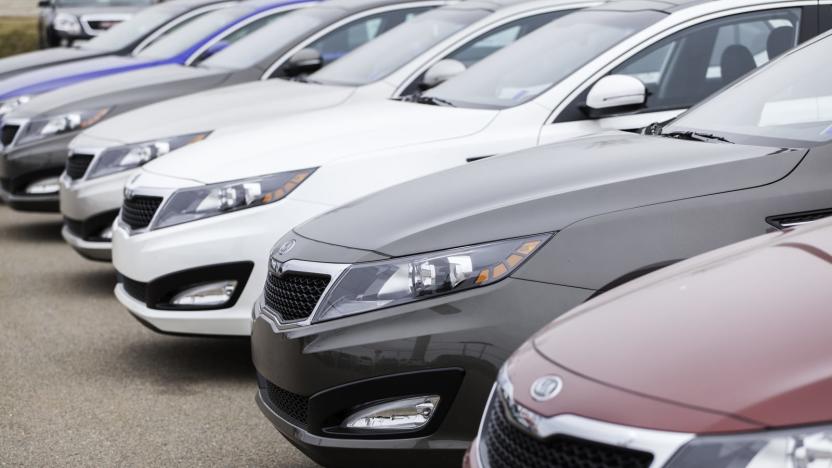
Kia recalls 500,000 vehicles in the US due to airbag glitch
Kia has issued a recall for 507,000 vehicles in the US, and those who get a notice may want to make sure they comply with its request. The automaker said those vehicles' airbag control units may be susceptible to an electronic glitch that prevents their airbags from deploying in a crash. In fact, the National Highway Traffic Safety Administration (NHTSA) is in the midst of investigating why the airbags in the Kia and (its affiliate automaker) Hyundai vehicles involved in six serious serious crashes, which killed four people and injured six, didn't deploy during the collisions.
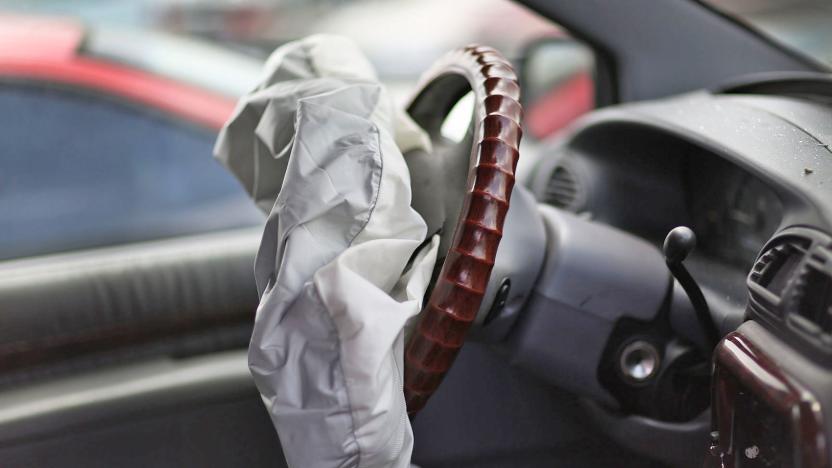
Honda sets aside $605 million to settle Takata airbag claims
The Takata airbag scandal affected several companies, but Honda felt its impact the most. Now, the Japanese automaker has agreed to a $605 million settlement to pay for buyers' claims related to the deadly airbags in the US. The money Honda set aside will go towards paying for all the out-of-pocket costs and lost wages customers might have incurred from having to get their Takata airbag-equipped cars repaired. According to Financial Times, part of that amount will also be used to create an outreach program designed to speed up the pace of the recall as well as the replacement of recalled parts.
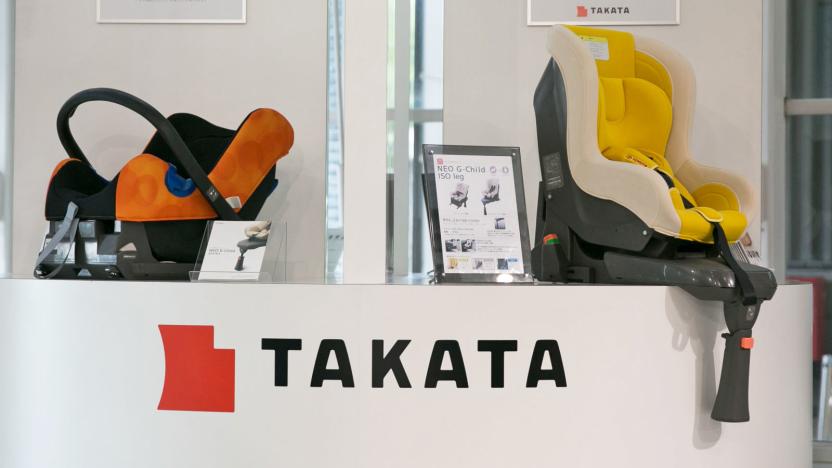
Faulty airbags cost Takata everything
Takata, the Japanese corporation at the heart of the auto industry's largest ever product recall, has filed for Chapter 11 bankruptcy protection. The business supplied airbag inflators that, thanks to poor standards in the plant where they were manufactured, were faulty. The scandal forced a worldwide recall of more than 40 million vehicles and several deaths have been linked to the issue.
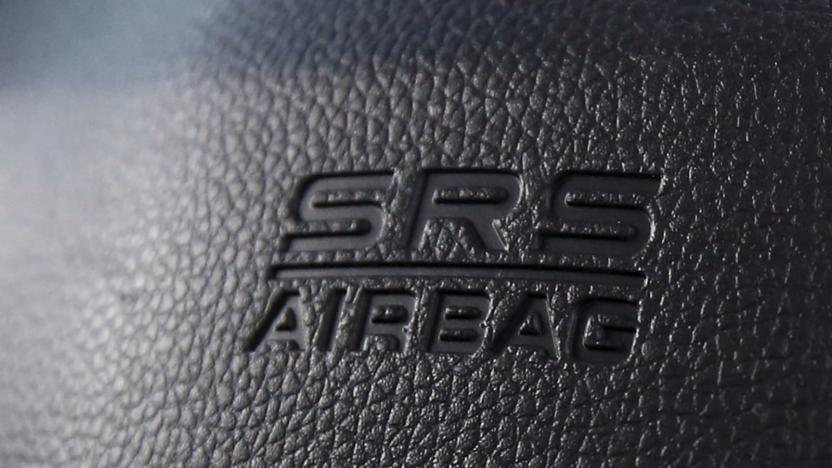
Three Takata executives charged in global airbag scandal
It's official: The US Department of Justice has indicted three Takata Corporation executives -- Shinichi Tanaka, Hideo Nakajima and Tsuneo Chikaraishi -- on charges that they knowingly falsified safety reports in an effort to continue selling airbags the company knew were unsafe. The DoJ is also expected to announce that the company will plead guilty to criminal misconduct charges, though that announcement has not yet been formally made.

GM recalls 4.3 million vehicles worldwide over faulty airbags
General Motors will recall 4.3 million vehicles across the globe because of a software defect in the airbag system that has so far been linked to one death and three injuries, Reuters reports. The bug prevents frontal airbags from deploying in "rare circumstances when a crash is preceded by a specific event impacting vehicle dynamics," GM tells Reuters.

Toyota recalls another 1.4 million cars with defective airbags
Airbags have been at the center of the largest auto recall this year. Japanese corporate Takata's faulty airbags have forced major automakers to recall about 60 million cars in the US alone. While the automative industry is still dealing with the extent of the risks associated with Takata's airbags, which have been linked to over a dozen deaths and a hundred injuries, Toyota has now announced a second recall. The Japanese carmaker is recalling 1.43 million cars because of defective inflators and another 2.87 million cars that have fuel emission problems.
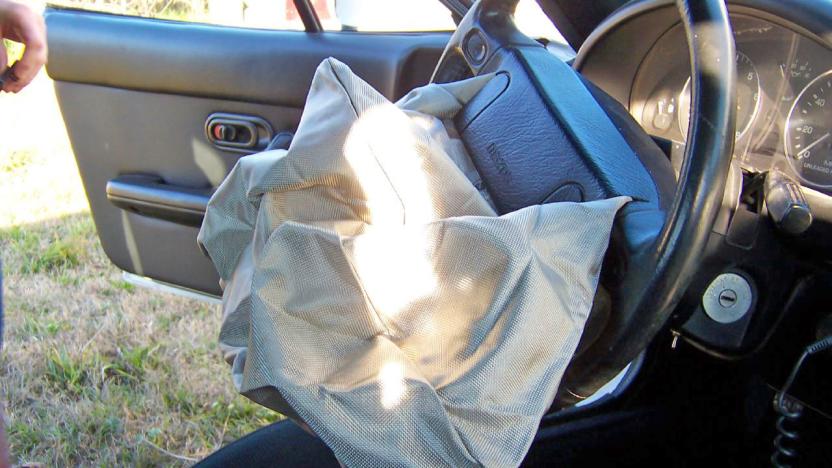
US automakers recall 12 million more vehicles with Takata airbags
Faulty Takata airbag inflators resulted in the recall of 12 million more US vehicles from eight major automakers on Friday. The National Highway Traffic Safety Administration posted recalls from Honda, Fiat Chrysler, Toyota, Mazda, Nissan, Subaru, Ferrari and Mitsubishi over the airbag issue, The AP reports. Dangerous inflators from Japanese company Takata have so far led to the recall of up to 40 million airbag systems worldwide. Japan's transport ministry also recalled an additional 7 million airbag systems on Friday.

Honda recalls another 2.2 million vehicles over airbag trouble
The ongoing saga of defective Takata airbags continues. Honda just announced that it added 2.23 million more vehicles to its recall list, making for a total of 8.51 million affected vehicles in the US, Autoblog reports. At issue is the airbag inflator used by Takata, which can potentially spray shrapnel on drivers and front-seat passengers. The airbag issue has steadily grown over the last few years -- now it affects 14 carmakers and 28 million inflators, reports the New York Times. So far, 10 deaths have been linked to the airbags worldwide, along with over 100 injuries.

Google's driverless car ideas include airbags on the outside
Airbags on the inside, that's what cars typically have. That's great for protecting people on the inside a vehicle. But, how about airbags on the outside, for the rest of us? Google's patented the idea for its driverless cars, with a system of inflatable bumpers that would react in the event of an accident. Sensors could detect when a collision is imminent and inflate the bags to hopefully reduce damage to anyone (or anything) involved. That said, typical airbags might not help when installed outside of the car, as any poor pedestrian that the system would aim to protect would likely be bounced off -- which doesn't sound particularly safe. Google has the answer, however: visco-elastic material.

Jeff Bezos drops phone, has eureka moment, patents mini airbags
Amazon CEO Jeff Bezos must have time on his hands and butter on his fingers. Why else would he have personally signed this patent application for a horrendously complicated "damage avoidance system?" It involves using a smartphone's inbuilt motion sensors to detect a free-fall calamity, then sending an emergency signal to a separate protective sleeve, which finally "deploys an airbag prior to contact." Heck, if we're going down that road Jeff, why not just stick some mini thrusters on it and make it hover?

Mercedes debuts airbag-laden S-Class ESF hybrid concept
Apparently not content to simply build a hybrid vehicle that's both energy-efficient and luxurious, Mercedes has now gone the extra mile with its new 2009 S-Class ESF concept, which packs more than a dozen different safety features including airbags inside and out. That latter outside-the-car airbag is actually a giant braking bag that deploys under the car when it "senses an imminent crash," which not only creates some added friction to slow the car down, but lifts the front of the car up about 80mm to compensate for brake dive. Other uncommon safety features include curtain airbags between the seats, airbags in the seatbelts, reflective tires, and "inflatable metal structures" throughout the vehicle, which apparently both saves space and increases crash protection. Unfortunately, there's no word on any further improvements to the hybrid side of things, but Mercedes' existing S400 Hybrid isn't exactly too shabby of a place to begin with.[Via Autoblog]

Toyota develops rear-collision airbag
We've got airbags in the front, airbags to the side, even airbags on the hip -- and now Toyota's installing the first rear-collision airbags into its Japan-only iQ minicar. The bags are designed to protect rear seat passengers, and inflate from above the rear window to blanket your noggin and reduce impact force to the head by half. The new system will be installed in iQ's by the end of the year, no word on whether it'll come to the States anytime soon.

Dutch cyclists lobbying for external airbags on cars
Sure, there's always the airbag-equipped motorcycle, but for those who prefer to power their own two wheel transporters, you're pretty much on your own. The Dutch Cycling Federation has just cranked out a study showing that some 60 lives could be saved each year (though we're not sure if that's worldwide or region-specific) if airbags were installed on the hoods of vehicles. These external safety devices could also slash serious cycling injuries by 1,500 a year, and while you're likely passing this off as completely infeasible, Sweden's own Autoliv has already developed a bag that "inflates from the bottom of the windscreen." Of course, these timid cyclists could just wait until 2010 and strap on a wearable airbag of their own, but where's the fun in that?[Via Autoblog]

Tesla sets the record straight: Roadster has airbags, okay?
Tesla VP of Sales, Marketing, and Service, Darryl Siry, set the record straight on the whole airbag wavier thing: in case it wasn't already clear, the Roadster does indeed have driver and passenger airbags. The waiver was regarding the fact that currently "front passenger airbag does not vary its deployment based on the weight of the passenger," and thus needed the waiver not unlike other boutique automakers (he cites the Ferrari F430 as an example). Of course, this misunderstandings and misinformation might have been mitigated if Tesla just addressed the issue at the time (instead of waiting a month after the fact); we can only hope their non-metaphoric airbags don't take as long to deploy.

Tesla Roadster gets out of air bag requirement for green behavior
Apparently when you're saving the planet with an all-electric car, there's no need to kill yourself over safety. The Tesla Roadster has been granted a waiver in regards to advanced air bags by the NHTSA, since the "public interest is served by encouraging the development of fuel-efficient and alternative-fueled vehicles." Standard air bags are still included, and Tesla apparently tried to comply with the advanced requirement, but told the NHTSA that it's in the hole financially, and would have to cancel the planned sedan and "ultimately have to terminate its operations" if forced to go through with the fancy air bags. All 2008 Roadsters have been pre-sold, and Tesla is supposed to start delivering the cars in Q1 2008.

Ford demos new airbag-based seatbelt design
It's not every day that auto technology moves from the speedway to the driveway. The Detroit News reports that Ford is working on a new style of seatbelts, inspired by race car driver seatbelts, which have mini-airbags embedded inside. When the airbag is deployed, the bag tears through the seam of the seatbelt and inflates cylindrically. The seatbelt orientation has also totally changed -- a hip strap and two shoulder straps creates a four-point restraint system, centered at the rider's belt buckle. Ford officials said that this new design cuts down on pressure to the chest during impacts. However, the company does acknkowledge that this design, which may takes years to reach the market, may be uncomfortable for some people, particularly pregnant women and large-bellied folks. So make sure you drop 20 pounds by the time you buy your 2012 model Ford, ok? The countdown begins... now.[Via Autopia]











